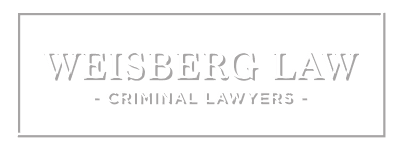What is Sexual Assault and Sexual Abuse
There is no Criminal Code definition of sexual abuse. Sexual abuse is a term that therapists, psychologists, psychiatrists and other health professionals use to describe unwanted sexual contact. There are sexual offences such as sexual interference and sexual exploitation that deal with the offences involving sexual acts performed with young people or children by an adult. In Canada, a person under the age of sixteen cannot consent to sexual activity with an adult (there are exceptions for being close in age: A youth of twelve or thirteen can consent to sexual activity with an individual no more than two years older than them. A fourteen or fifteen-year-old can consent to sexual activity with a partner who is no more than five years older than them). Sexual assault can be most simply defined as an assault that is committed in circumstances of a “sexual nature” that violate the sexual integrity of the victim.
The Components of a Sexual Assault:
1. Determining Whether an Assault is “Sexual in Nature.”
Determining if the assault, alleged to have occurred, was of a sexual nature is usually done by examining the alleged conduct and circumstances. The Court or Judge will apply a common sense approach, and consider:
- Which part of the body was being touched
- What part of the body the accused used to touch
- The nature of the contact
- The situation in which it occurred
- The words and gestures accompanying the act
- All other circumstances surrounding the conduct including the motives of the accused.
2. Complainant vs. Victim
Police and Crown Attorney’s often call people that claim they were sexually assaulted “victims.” The term victim presumes the accused did something to make the person a victim – in short, it presumes guilt. Lawyers will often term accusers “complainants” because the term preserves the presumption of innocence on behalf of the accused.
3. Definition of Sexual Assault
The Criminal Code of Canada defines sexual assault. The following is not an extensive or comprehensive definition of sexual assault. This definition is just illustrative of the most common allegations with respect to Toronto sexual assault charges.
Sexual assault can be defined as contact of a “sexual nature” applied intentionally and occurring without the consent of another person or a threat by act or gesture to apply force of a sexual nature to another person. A sexual assault is alleged to have occurred where the complainant submits or does not resist non-consensual sexual activity because of the application of force to the complainant or to a person other than the complainant. Sexual assault may also be charged as sexual assault with a weapon, sexual assault causing bodily harm and aggravated sexual assault. The Courts will also in certain circumstances find a sexual assault where fraud or the exercise of authority are used to obtain sex.
Sexual Assault Defences
The four most common defences advanced in sexual assault trials are:
- Identity
- The sex did not happen
- There was consent
- There was an honest but mistaken belief in consent on behalf of the accused.
Identity
The complainant must be able to identify the accused as the person that committed the sexual assault. Forensic tools are sometimes employed to establish or confirm the identity of the attacker (DNA, fingerprints, etc.).
The Sex Did Not Happen
The accused person may claim that there never was any sexual activity that occurred between the parties. The sexual assault trial in this type of scenario will often become a credibility battle between the accused and the complainant. It will be important for a sexual assault lawyer to interview the client thoroughly to determine the motive for the false complaint and to gather evidence to discredit the complainant’s credibility.
Was There Consent?
A central issue in many sexual assault cases is whether the sexual activity in question was consensual between the parties. If there was a voluntary consensual agreement between parties to engage in the sexual activity then it is NOT a sexual assault. This defense may lead to a credibility battle between the accused and the complainant as to whether consent was given. A sexual assault lawyer will have to research the complainant’s background and investigate possible motives to fabricate non-consensual sexual activity. There are situations where the courts will find consent is not available such as:
- The complainant is too intoxicated to consent
- The complainant does not have the mental capacity to consent
- The complainant revokes consent during the activity
- The complainant is under the age of 16 (see the “close-in-age” exception noted above)
Mistaken Belief in Consent
An accused can also advance the defence that they honestly but mistakenly believed that there was consent with respect to the sexual activity. The accused will have to be able to articulate that they held this reasonable belief based on the complainant’s communication of consent through words or actions. There are limits on this defence in that the accused cannot rely on his self-induced intoxication, being wilfully blind or reckless, or not taking reasonable steps to ascertain if the complainant was consenting.
Special rules for Sexual Assault Allegations
An experienced sexual assault lawyer in Toronto will be required to help attack the complainant’s credibility with respect to the allegations. There are limits as to areas of credibility that are allowed to be attacked that may require special applications. A skilled sexual assault lawyer will be needed to advance positions dealing with the complainant’s prior sexual history or in obtaining medical and psychiatric records.
Charged with a sexual assault?
Call Adam Weisberg at 416.605.4811 for him to determine your best defence to these charges.
